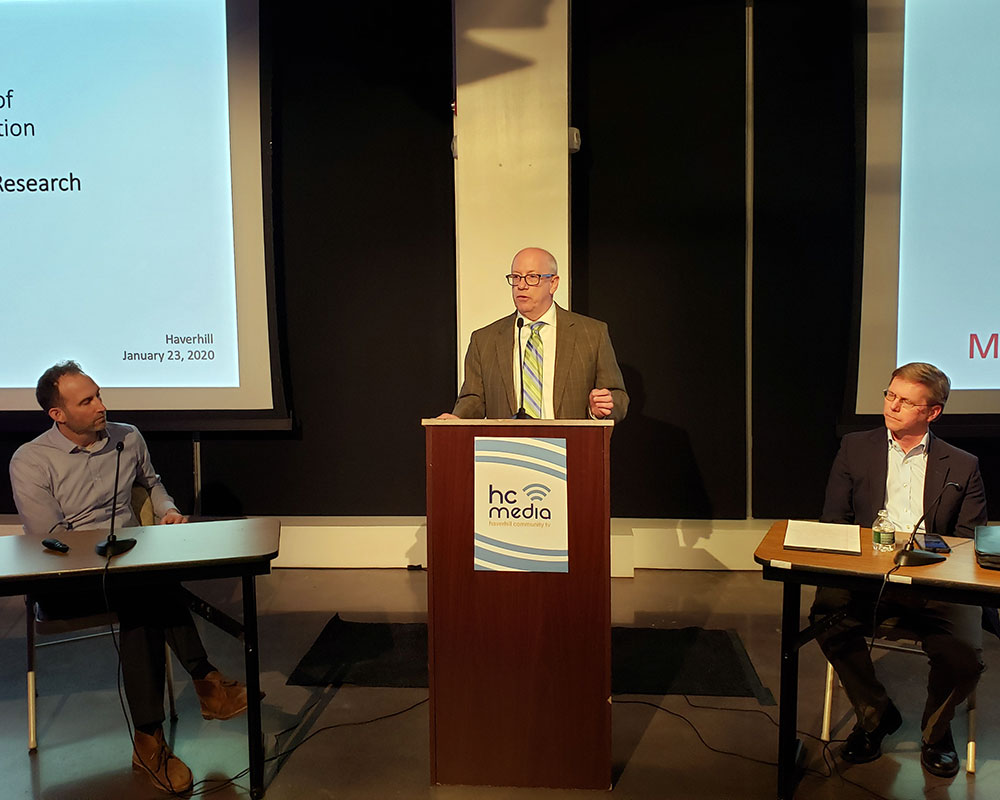Under threat of lawsuit, Haverhill is being told to elect its City Council and School Committee by neighborhood. It may be too late, however, for voter input on the change.
Haverhill City Clerk Linda L. Koutloulas said Tuesday it may be possible to get the question on November’s local election ballot. However, Haverhill Latino Coalition’s Manual “Manny” Matias told WHAV it is time to petition the state legislature to impose the change on the city.
“We would want the home-rule petition. That is an option so we would welcome that, but we don’t want this to go on the ballot. We see what the (minority population) numbers state and they see what the numbers state. It’s up to them (the City Council) to make that decision,” he explained.
Matias noted numbers showing communities of color account for nearly 30% of the city’s population, with Latino residents comprising 23% and a school population of approximately 50% students of color, come from 2010 federal census figures. He expects 2020 census numbers to be higher.
As WHAV reported first Tuesday, Boston-based Lawyers for Civil Rights—the same group that forced Lowell to change its charter—sent a letter of “demand” Monday that the “City Council to take concrete steps to address this issue.” The group apparently sought publicity in Boston media before notifying anyone locally, including the target of the demand—city councilors.
Following a January 2020 downtown Haverhill forum, “Exploring the Possibility of Neighborhood Representation,” a suggestion that voters elect city councilors by ward ballooned into calls for also changing the election of School Committee and possibly limiting powers of the mayor. Haverhill city councilors last year considered everything from a simple ballot question to a full Charter Commission, but progress stopped with the arrival of the COVID-19 pandemic. Matias said the delay was troubling.
“Nobody paid attention to it. Nobody followed up so we felt it was necessary to send in a letter for change,” he said.
Kalister Green-Byrd, an African American supporter of the Latino Coalition, said the time has come. “I think it is time for Haverhill to make a change. The city has changed since I’ve been here, over the years. It needs to reflect the diversity of the city now,” she said.
Haverhill Mayor James J. Fiorentini reacted to the threat of legal action, by saying what amounted to an “I told you so” to the City Council. “This is what I warned the Council about on several occasions. That unless they put it on the ballot, we would be subject to a lawsuit. This isn’t a lawsuit. This is a letter asking us to lead under threat of a lawsuit. This is what I warned the City Council about. This should have gone on the ballot last year. This is what I told them would happen, and it has happened,” the mayor told WHAV.
Haverhill City Council President Melinda E. Barrett said there were obstacles stacked against a voter question last year, from the need for separate ballots during the state election to advocates’ concerns they would be unable to campaign door-to-door for the question with pandemic-induced isolation.
“Should we put it on the ballot last year? And, they were all like ‘No because we can’t get out to explain it to people’,” she remembers.
Councilor John A. Michitson, a supporter of ward councilors and other changes such as limits on the mayor’s power, agreed with Barrett’s analysis, but with some misgivings. “Quite frankly, I’m not sure that they were wrong based on the number of people that voted in the last election. Now, we wouldn’t have had enough time to properly educate people, but maybe that was a mistake,” he said.
The mayor said he plans to respond to the lawyers for Civil Rights, but agrees with Matias the only option to avoid a lawsuit may be to approach the legislature. “I always prefer that the people have a right to vote on this. It may or may not be too late, but what I’m more concerned about is that this is going to cost the city money,” he said.
The mayor added that if there are to be further changes to the city charter beyond neighborhood election of city councilors and School Committee members, it should be decided by the new ward-based City Council.

